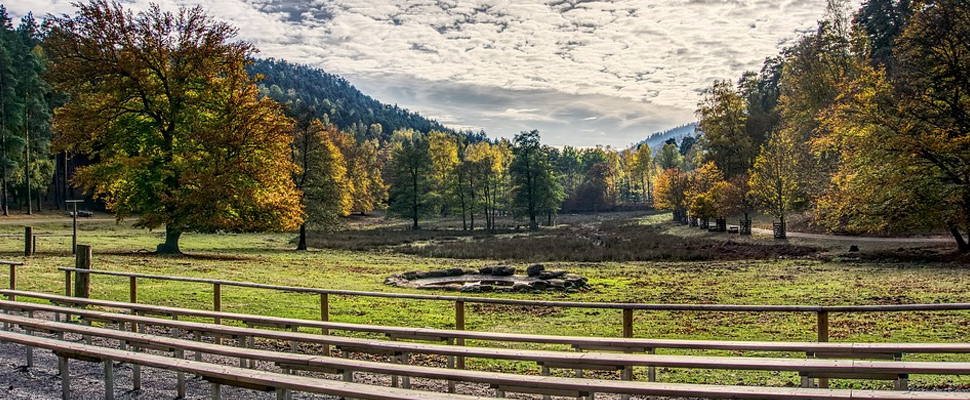Being a park ranger: a profession or a job?
If I say that someone is a civil engineer, lawyer or doctor, nobody doubts that I am referring to that person's profession. If instead, I speak of a manager, a sales manager or an auditor, I refer to jobs. But if I pronounce the word park ranger, am I referring to a profession or a job that can be filled from different professions?

View of a park. / Photo: Pixabay – Reference Image
LatinAmerican Post | Jorge Guasp
Escucha este artículo
Leer en español: Ser guardaparque: ¿una profesión o un puesto laboral?
This discussion, which a priori may seem trivial and of a semantic nature, is of the utmost importance since it determines how park rangers destined for a protected natural area are formed and selected.
What tasks does a park ranger do?
The official website argentina.gob.ar states that “our park rangers are in charge of the control and surveillance of the National System of Protected Areas. But this, although it is their priority task, is not the only one they perform. They are responsible for the attention to visitors, working with residents and local communities, environmental education, support for scientific research, prevention and fire fighting. ”
Characteristics of the training and selection of park rangers in Argentina
Those who believe that the park ranger's job is a profession, agree that these employees should be trained through careers or courses, like any other graduate. This position supports, in Argentina, the dictation of the ranger career in several universities of the country, and the existence of a park ranger school that belongs to National Parks. Graduate from this official training center, and then be admitted as an employee in the National Park Administration, gives Argentine rangers a series of privileges: job stability, free housing, additional salary for risk and greater dedication, possibility of promotion, and retirement after only 20 years of service.
The National Park Administration of Argentina selects candidates who have completed the park ranger career at some university and then gives them an official park ranger course at their own school. This strategy is not only, in my opinion, unnecessary (I find no sense in training as a park ranger who has already studied that career), but it is also expensive as applicants receive a scholarship, and the state is responsible for supporting the infrastructure of the school (building, teachers, food, etc.).
Also read: Plastic pollution damages the bacteria that help us breathe
What requirements must a candidate have to work as a park ranger in the first world?
According to the website www.parkrangeredu.org, in the United States “there is a wide range of academic fields to work as a park ranger. Most of those who aspire to be park rangers choose to pursue degree careers related to conservation, biology, botany, ecology, afforestation, Earth sciences, and anthropology, to name just a few.” In Australia, according to the job and career site www.seek.com.au, to be a park ranger you need to have "tertiary qualifications in environmental management, land management or conservation, and natural resources."
These two countries, with huge territory and a long history in nature conservation, do not have ranger careers and choose these workers through calls, for which candidates must have previously trained in one of the fields mentioned.
To be or to do?
After having shared with the park rangers more than 20 years of work in national parks, I consider that there is no park ranger profession or career that suits all areas of work. In a tourist place, for example, the call for a park ranger position could be oriented towards applicants who have studied tourism, recreation or sociology. But to work in a jungle area with few visitors, however, a park ranger candidate who is an ecologist, biologist, agronomist or forestry engineer, among other university formations, may be needed.
Also read: Sperm whale stranded in Scotland sets world alarms
Not only the training matters but also the commitment
Either way, training is only part of the requirements to perform the park ranger task. Undoubtedly there are others, of a personal nature, that are often as important or more important than the academic background since the commitment of these people to their work depends on them.
Contributing to the conservation of nature is a noble task. That it is effective depends not only on the formation of the park ranger candidates and their selection process but also on the passion and responsibility with which they assume the daily challenges of ensuring the future of nature, a future of which depends on nothing less than our survival as a species.





